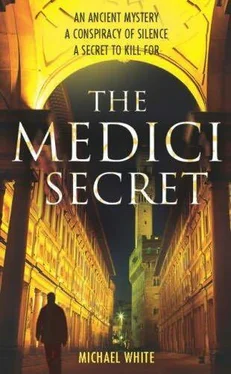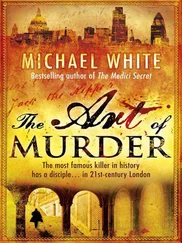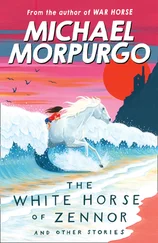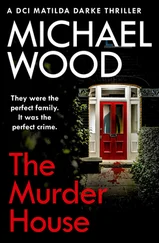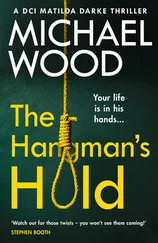Michael White - The Medici secret
Здесь есть возможность читать онлайн «Michael White - The Medici secret» весь текст электронной книги совершенно бесплатно (целиком полную версию без сокращений). В некоторых случаях можно слушать аудио, скачать через торрент в формате fb2 и присутствует краткое содержание. Жанр: Триллер, на английском языке. Описание произведения, (предисловие) а так же отзывы посетителей доступны на портале библиотеки ЛибКат.
- Название:The Medici secret
- Автор:
- Жанр:
- Год:неизвестен
- ISBN:нет данных
- Рейтинг книги:4 / 5. Голосов: 1
-
Избранное:Добавить в избранное
- Отзывы:
-
Ваша оценка:
- 80
- 1
- 2
- 3
- 4
- 5
The Medici secret: краткое содержание, описание и аннотация
Предлагаем к чтению аннотацию, описание, краткое содержание или предисловие (зависит от того, что написал сам автор книги «The Medici secret»). Если вы не нашли необходимую информацию о книге — напишите в комментариях, мы постараемся отыскать её.
The Medici secret — читать онлайн бесплатно полную книгу (весь текст) целиком
Ниже представлен текст книги, разбитый по страницам. Система сохранения места последней прочитанной страницы, позволяет с удобством читать онлайн бесплатно книгу «The Medici secret», без необходимости каждый раз заново искать на чём Вы остановились. Поставьте закладку, и сможете в любой момент перейти на страницу, на которой закончили чтение.
Интервал:
Закладка:
During the first three decades of the fifteenth century, several hundred original manuscripts found their way to Florence, largely from the East; where once Crusaders fought for Christendom, Western emissaries now bartered and purchased intellectual capital from the Turk. A single Florentine agent, Giovanni Aurispa returned after one particularly fruitful voyage in 1423 with 238 complete manuscripts.
In this way, the intellectual community of Florence acquired complete versions of Aristotle's Politics, the histories of Herodotus, the dialogues of Plato, the Iliad, the Odyssey and the plays of Sophocles, along with the medical writings of Hippocrates and Galen.
With accurate translations of a growing collection of Greek texts came the startling realisation that everything the Florentines had achieved culturally so far had been surpassed almost two millennia earlier by the Greeks. But this discovery did not act as a destructive force. It inspired them not only to emulate but to dare consider improving upon what the ancients had achieved.
In 1428, a committee was organised to instigate a series of changes to the education system of Florence. One of the trustees of the Studium, which lay at the cultural heart of the city, was Cosimo de' Medici, then a young banker living in Rome. He persuaded the clerical institutions of Florence to provide an annual 1,500 florins to add two new chairs to the rostrum of subjects. The existing curricula consisted of medicine, astrology, logic, grammar and law, and to these were added moral philosophy and a professorship of rhetoric and poetry. This provided a new syllabus for every student in Florence, and formed the foundation of the system adopted throughout Europe that remained in place within the universities of England, France and Italy until the eighteenth century.
Biochemical Weapons
The biochemical at the centre of the novel – the Medici Secret itself – is Ropractin. This is a fictional chemical but its structure and properties are very close to a real biochemical agent called Sarin. This biochemical is also known by its NATO designation of 'GB'. Sarin is an extremely toxic substance and its sole application is as a nerve agent. It has been classified a weapon of mass destruction by the United Nations, and its production and stockpiling was outlawed by the Chemical Weapons Convention of 1993.
Sarin became famous in 1994 when it was used by the Japanese religious sect Aum Shinrikyo whose fanatical members released an impure form of the biochemical during several connected incidents, which together resulted in the deaths of more than a score of people and injured hundreds of others.
Biochemical and biological weapons have been known for centuries. The earliest example of a biological weapon comes from a time predating the story of Cosimo and his associates in The Medici Secret. In 1346, the bodies of Tartar soldiers who had died of the plague were thrown over the walls of the besieged city of Kaffa (now Fedossia in the Crimea) to infect those within. Four centuries later, during the French and Indian War in North America in the 1760s, the English gave blankets contaminated with smallpox virus to the natives.
Chemical weapons were used on several occasions during the First World War, and, in more recent times, the late leader of Iraq, Saddam Hussein, is known to have gassed thousands of Kurds and used biochemical weapons during the decade-long war with Iran that began in 1980.
Today, the use of biochemical and biological agents by terrorist groups is a very real fear for Western governments. Huge resources are deployed in an ongoing effort to stop such substances falling into the wrong hands, but many believe that it is only a matter of time before some nihilistic individual or organisation somewhere obtains sufficient quantities of a deadly agent to cause mass murder in a Western city. It is sobering to realise that there may well be a Luc Fournier out there now formulating such a nefarious plan. Further Reading: Biochemical Weapons: Limiting the Threat, Joshua Lederberg, MIT Press, Boston, 1999.
Giordano Bruno
Giordano Bruno was a mystic and a philosopher who rejected both the priesthood and orthodox religion to become a man abhorred by the Inquisition. Born in Nola near Naples in 1548, he joined the Dominican order. But, after discovering a wider philosophical outlook through the work of Copernicus and other unorthodox thinkers, he turned his back on religious dogma. He wrote many books of radical philosophy, the most famous of which was The Ash Wednesday Supper.
Bruno lived in London for a short time and is believed to have worked as a spy for Queen Elizabeth I. He associated with many of the mystics of the day, including John Dee, and he may have met William Shakespeare who is known to have become interested in many of Bruno's ideas.
Early in 1592 Bruno moved back to Italy at the invitation of a nobleman named Giovanni Mocenigo. Ostensibly, this was so he would become a tutor to this wealthy patron. While in Venice, he taught in Padua and made the acquaintance of Galileo and other thinkers of the time. However, the invitation from Mocenigo was a trap, and in May 1592 Bruno was arrested in Venice and put on trial before the Venetian Inquisition. He was then transferred to Rome. There he remained in a filthy cell for seven years. He endured terrible torture at the hands of the Pope's right-hand man, Robert Bellarmine and was burned at the stake in Campo de' Fiori in Rome on 17 February 1600.
Although Giordano was murdered by the Inquisition, today he is considered to be the first martyr of science and philosophy, a man who refused to back down from his opinions about the nature of the universe. Galileo was well aware of Bruno's treatment at the hands of the Roman Curia and did not want to share the same fate. Bruno's legacy has grown as the Catholic Church has diminished, but he remains anathema to orthodoxy and even now, over four centuries after his death, he has not been pardoned for his so-called heretical views. Further Reading: The Pope and the Heretic, Michael White, Abacus, London, 2002.
Cosimo and the Medici
My drawing of the character and early biography of Cosimo de' Medici in The Medici Secret are as accurate as I could make them. He was born in Florence in 1389. His family did live in a house on Piazza del Duomo, his father was named Giovanni di Bicci de' Medici who did found what was by 1410 already a great bank.
In reality, Cosimo had two younger siblings, Lorenzo and Pierfrancesco. Lorenzo was sixteen in 1410 and Cosimo's half-brother Pierfrancesco was not born until 1431, twenty-one years after the events described in the novel. However, the essential fact that differentiates the fictional and the actual Cosimo is that, in reality, he never did make a voyage of discovery to Macedonia, or anywhere else. However, intriguingly, he did come very close to it. His intimate friend Niccolo Niccoli tried to persuade him to join him on a journey to the East, but Cosimo's father refused to allow it, and Cosimo acceded to his father's wishes.
Cosimo was a Humanist. He was extremely interested in culture and learning and he did a great deal to spark the Renaissance. Although he did not actually travel far himself, he paid others to retrieve anything they could from far-flung places, including Macedonia.
Cosimo was, like his father, a great businessman and he did much to further expand the horizons of the family bank. Most importantly, he handled papal finances. This was crucial in the evolution of the Medici dynasty and it made him the wealthiest man of his time.
But of course, the Medici had enemies – not the Tommasini family – and there were constant rivalries between them and other great Italian families. One, the Albizzi tried to have him assassinated, and when this failed they succeeded in having him imprisoned in 1433. But within a year, Cosimo was back in Florence and had acquired greater power and influence. For the next thirty years he was, in all but name, leader of Florence.
Читать дальшеИнтервал:
Закладка:
Похожие книги на «The Medici secret»
Представляем Вашему вниманию похожие книги на «The Medici secret» списком для выбора. Мы отобрали схожую по названию и смыслу литературу в надежде предоставить читателям больше вариантов отыскать новые, интересные, ещё непрочитанные произведения.
Обсуждение, отзывы о книге «The Medici secret» и просто собственные мнения читателей. Оставьте ваши комментарии, напишите, что Вы думаете о произведении, его смысле или главных героях. Укажите что конкретно понравилось, а что нет, и почему Вы так считаете.
